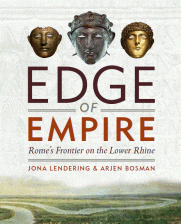I had to read a bit of Gibbon these days, and came across that famous line of his:
If a man were called to fix the period in the history of the world, during which the condition of the human race was most happy and prosperous, he would, without hesitation, name that which elapsed from the death of Domitian to the accession of Commodus. The vast extent of the Roman empire was governed by absolute power, under the guidance of virtue and wisdom. The armies were restrained by the firm but gentle hand of four successive emperors, whose characters and authority commanded involuntary respect. The forms of the civil administration were carefully preserved by Nerva, Trajan, Hadrian, and the Antonines, who delighted in the image of liberty, and were pleased with considering themselves as the accountable ministers of the laws.
I must have read those words a dozen times, but only today did I realize that the historian does not share the judgment that “a man” was called to fix. After all, the main theme of his book is that the Roman Empire was bound to collapse because it lacked personal freedom. Its citizens had no interest in keeping it alive. If only the Roman Empire would have had a parliament!
If such an institution, which gave the people an interest in their own government, had been universally established by Trajan or the Antonines, the seeds of public wisdom and virtue might have been cherished and propagated in the empire of Rome. The privileges of the subject would have secured the throne of the monarch the abuses of an arbitrary administration might have been prevented, in some degree, or corrected, by the interposition of these representative assemblies; and the country would have been defended against a foreign enemy by the arms of natives and freemen. Under the mild and generous influence of liberty, the Roman empire might have remained invincible and immortal.
But the Roman Empire didn’t have a parliament, and therefore, it fell. This was different in Britain, where – according to Gibbon – the best part of the nation was represented in the House of Lords, and even the mere bourgeoisie was allowed a vote in the House of Commons. Therefore, there was no need to fear another “awful revolution”. The happiest age of mankind was, in Gibbon’s view, his own eighteenth century.

 Subscribe to feed
Subscribe to feed
I don’t think Gibbon is saying that. Under the Good Emperors (in Gibbon’s view) riches, peace, and prosperity were enjoyed by more people than in the 18th century, however advanced he considered 18th century Britain to be. He thinks 18th century Britain has better institutions to preserve the benefits the people currently enjoy but Britain is only a small part of the territory covered by the Roman Empire under the Good Emperors.
Good point!
I suppose from his point of view that is how it is and the case is made. I wonder how one of the crofters forced from their land. That their families had lived on and were part of for living memory? Or any other “ordinary joe”, thrown off the lands by the enclosure acts in England? As it is always comparative, The relativity always somewhat skewed, by personal circumstance? Donch’s think? …. cheers!
BTW. the assumption of the rich, is always that the people are like cattle. Then treating them, so. In the end we all eat the same dust.
…but the Eastern Roman Empire didn’t have a parliament either, and it lived on for another 1,000 years.
Very acute observation. But then history is always about the present.